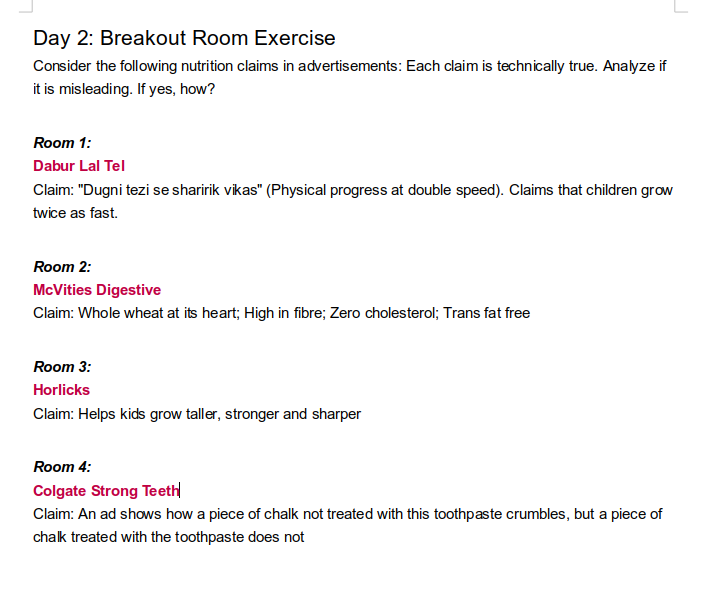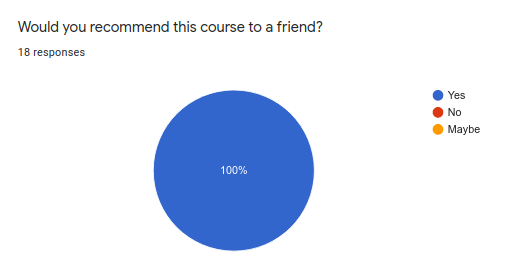
1/ I've now taught my "Defense Against the Dark Arts" course (teaching teenagers about misinformation, fake news, misleading ads, etc) to 4 batches, and it has been a very rewarding experience for me
A quick thread on my learnings and suggestions for you
genwise.in/events-3/defen…
A quick thread on my learnings and suggestions for you
genwise.in/events-3/defen…
2/ My biggest learning has been how quickly children figure out things with the help of the internet as long as they are just pointed in the correct direction.
They don't need teachers. They need people who can motivate them and point them in the right direction.
They don't need teachers. They need people who can motivate them and point them in the right direction.
3/ Consider the exercise in this photo. I gave them no other coaching, but within minutes most of them had figured out why each of these ads was misleading and they were able to articulate and discuss subtleties like "The product is a good product, but the claim is exaggerated." 

4/ Suggestion for parents/teachers: Instead of trying to teach students, just seed their mind with intriguing questions and let them find answers on their own. There's educational research suggesting that this actually works quite well, even for very complex problems
5/ Another surprise for me was that students wanted more. "There should have been more homework" is quite a common complaint in the feedback forms. As are requests for more reading material.
For the right material, and the right environment, there is a hunger to learn.

For the right material, and the right environment, there is a hunger to learn.


6/ Sadly, the bar for "right material, right environment" is quite low. Children expect to be bored in classes, and even amateur attempts to make it interactive and help them discover surprising things on their own makes a big difference in how they get involved with the course 



7/ But the biggest source of gratification for me was the things the possibility, however small, that this might make an actual long-term difference to some people.
Here's hoping that this kid becomes a terror in their WhatsApp groups 😂
Here's hoping that this kid becomes a terror in their WhatsApp groups 😂

9/ Here's a kid whose faith in "the authorities" has now been eroded, and hopefully that will make him/her a better citizen 

10/ And another whose level of belief in advertisements by big companies has fallen, and hopefully that will make him/her a better consumer 

11/ It is even more satisfying when the kids
▶️ Realize that things are rarely black-and-white
▶️ And are able to articulate it so well
▶️ Realize that things are rarely black-and-white
▶️ And are able to articulate it so well

13/ It warms my heart to teach this course to such students. There one more batch starting next Monday (4 sessions of 1.5 hours each, Monday to Thursday):
genwise.in/events-3/defen…
genwise.in/events-3/defen…

• • •
Missing some Tweet in this thread? You can try to
force a refresh




